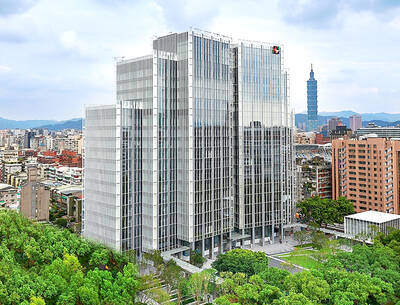State-run CPC Corp, Taiwan (台灣中油) plans to start decommissioning five units, including a gasoline-making plant at its Kaohsiung refinery, today, making good on a promise made to local residents years ago.
The residual fluid catalytic cracker, which can process 25,000 barrels a day, will be closed permanently, CPC vice president Paul Chen (陳綠蔚) said by telephone in Taipei yesterday.
Two vacuum distillation units, a delayed coker and a gasoil desulfurization plant will also be shut, according to Chen.
“We will start the process step by step from tomorrow,” Chen said.
The company agreed 20 years ago to close its Kaohsiung refinery by 2015 in exchange for local residents allowing the firm to build a new ethylene plant on the site.
CPC operates three refineries — the Kaohsiung and Talin plants in Kaohsiung City and Taoyuan — with a combined processing capacity of 720,000 barrels of crude oil a day.
The oil refiner shut a 50,000-barrel-a-day crude oil unit in Kaohsiung in 2005.
The vacuum distillation units produce raw material for the residual fluid catalytic cracker, which makes gasoline and diesel. The gasoil desulfurization unit removes sulfur from fuel produced at the delayed coker.
CPC expects to utilize less of its capacity to turn crude into oil products next year after shutting down several units.
The refiner plans to process 509,119 barrels of crude a day next year, or 71 percent of capacity, compared with a projected 80 percent this year, according to the government’s draft budget for next year. CPC currently has the capacity to refine 720,000 barrels of crude daily.
The refiner’s fuel-oil sales will probably drop 16.8 percent next year, compared with a projected 13.8 percent decline in diesel, according to the draft budget. CPC expects to sell 5 percent less jet fuel and 5.4 percent less gasoline.
CPC forecasts that net income for next year will fall to NT$9.61 billion (US$300 million) from NT$12.4 billion projected for this year, according to the government budget.
Meanwhile, state-controlled Taiwan Sugar Corp (台糖) expects production to fall 12.5 percent to 45,602 metric tonnes next year, while electricity sales at Taiwan Power Co (台電) is likely to rise 2.1 percent, the government budget forecast.

UNCERTAINTY: Investors remain worried that trade negotiations with Washington could go poorly, given Trump’s inconsistency on tariffs in his second term, experts said The consumer confidence index this month fell for a ninth consecutive month to its lowest level in 13 months, as global trade uncertainties and tariff risks cloud Taiwan’s economic outlook, a survey released yesterday by National Central University found. The biggest decline came from the timing for stock investments, which plunged 11.82 points to 26.82, underscoring bleak investor confidence, it said. “Although the TAIEX reclaimed the 21,000-point mark after the US and China agreed to bury the hatchet for 90 days, investors remain worried that the situation would turn sour later,” said Dachrahn Wu (吳大任), director of the university’s Research Center for

Alchip Technologies Ltd (世芯), an application-specific integrated circuit (ASIC) designer specializing in artificial-intelligence (AI) chips, yesterday said that small-volume production of 3-nanometer (nm) chips for a key customer is on track to start by the end of this year, dismissing speculation about delays in producing advanced chips. As Alchip is transitioning from 7-nanometer and 5-nanometer process technology to 3 nanometers, investors and shareholders have been closely monitoring whether the company is navigating through such transition smoothly. “We are proceeding well in [building] this generation [of chips]. It appears to me that no revision will be required. We have achieved success in designing

PROJECTION: KGI Financial said that based on its foreign exchange exposure, a NT$0.1 increase in the New Taiwan dollar would negatively impact it by about NT$1.7 billion KGI Financial Holding Co (凱基金控) yesterday said its life insurance arm has increased hedging and adopted other moves to curb the impact of the local currency’s appreciation on its profitability. “It is difficult to accurately depict the hedging costs, which might vary from 7 percent to 40 percent in a single day,” KGI Life Insurance Co (凱基人壽) told an investors’ conference in Taipei. KGI Life, which underpinned 66 percent of the group’s total net income last year, has elevated hedging to 55 to 60 percent, while using a basket of currencies to manage currency volatility, the insurer said. As different

Taiwanese insurers are facing difficult questions about the damage of recent swings in the New Taiwan dollar. Regulators might have a partial solution: letting firms change how they calculate the value of foreign currency assets. The Financial Supervisory Commission (FSC) is considering allowing insurers to use six-month average exchange rates when they calculate risk-based capital in their semiannual reports, a shift from the current system where insurers use exchange rates on the final day of reporting. The change could ease pressure on the US$1.2 trillion insurance sector, whose huge exposure to foreign assets came into the spotlight earlier this month after a